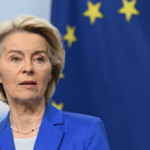CNN: As Venezuelan President Nicolas Maduro faces growing US military pressure and calls for his resignation, an old foe is returning to haunt him in his own backyard: Inflation, one of Venezuela’s chronic economic maladies, is on the rise again.
“Prices are growing every day,” said Yon Michael Hernandez, 25, a motorcycle taxi driver in the slum of Petare, east of Caracas.
“Corn flour is 220 bolivars today, it may be 240 tomorrow and 260 the day after, and the same package that might have cost you one dollar 15 days ago is worth three now,” Hernandez told CNN. He referred to the Venezuelan currency and to the pre-cooked flour used to make arepas, the ubiquitous corn pancakes that are a daily staple.
In the three months since the Pentagon deployed warships and aircraft in a campaign that the White House said was aimed at drug traffickers from Venezuela, the bolivar has depreciated around 70% against the US dollar, according to data from the central bank, hemorrhaging one point every day.
In the illegal but widely used currency black market, the drop has been just as steep. At the official rate, the US dollar is pegged at about 231 Venezuelan bolivars. On the black market, a dollar is worth roughly a third more. The Venezuelan government prohibits publishing black market exchange rates.
The surge in inflation is linked – although only partially – with the growing tensions between the Trump administration and the Maduro government, which has been under US Treasury Department sanctions for almost a decade.
Only last year, Maduro boasted about the results of those reforms, claiming his country’s GDP was growing at 8% and that inflation was at the lowest rate in four decades. The autocratic leader no longer makes such claims.
According to the United Nations, Venezuela historically does not produce enough food to meet its needs, and many products must be imported from abroad and paid for in foreign currencies.
The stream of remittances from relatives abroad, a consequence of more than 7 million Venezuelans fleeing the country under Maduro to look for better opportunities elsewhere, is also falling short.







